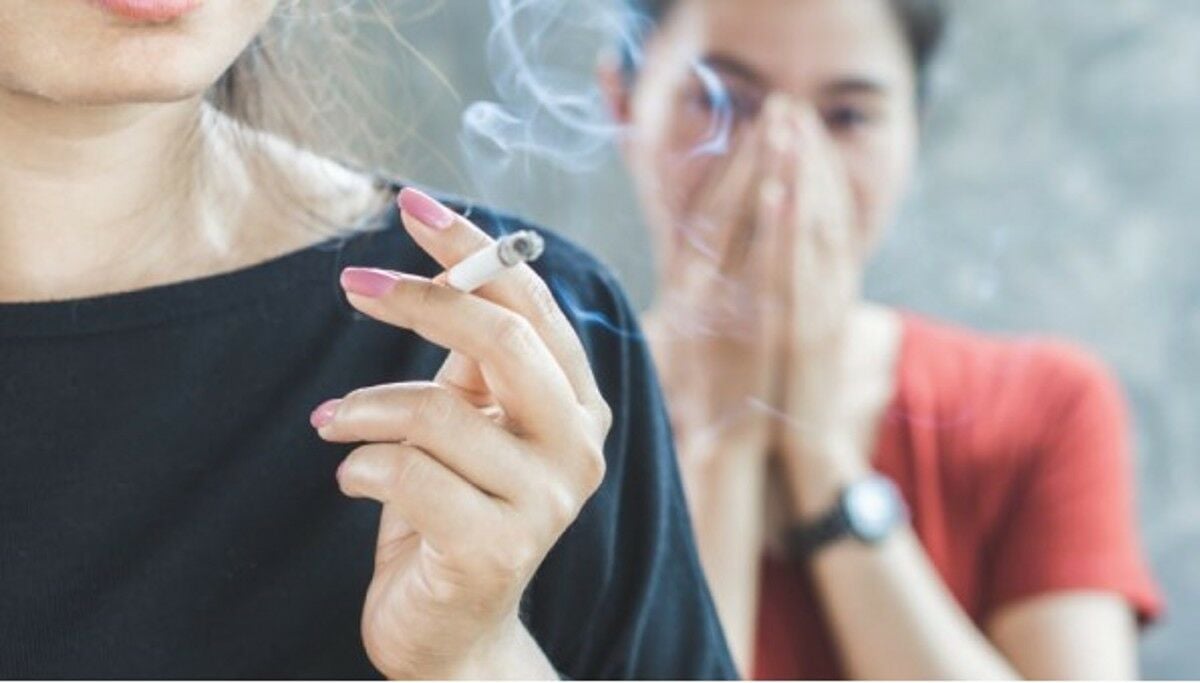Thailand ranks No.5 for female secondhand smoke exposure

Thailand is grappling with a significant public health concern as it ranks No.5 globally for the number of female victims of secondhand smoke. These women face a 1.24 times higher risk of developing breast cancer compared to those in smoke-free settings, according to health experts.
Dr Roengrudee Patanavanish from Mahidol University’s Faculty of Medicine highlighted the pressing issue of secondhand smoke exposure in Thailand. Alarmingly, 70% of the country’s 34 million non-smokers are reportedly affected by secondhand smoke.
During a seminar which focused on the dangers of secondhand smoke, Dr Roengrudee referred to a survey conducted in 2019 by the Burden of Disease Research Programme Thailand and the International Health Policy Programme. The findings revealed that an average of 20,688 Thai individuals succumb to diseases related to secondhand smoke annually.
Thai females aged 15 to 49 are particularly vulnerable. Among 57 countries, they rank No.5 in terms of exposure to secondhand smoke, with 68% experiencing harmful smoke pollution at home.
“The situation is concerning because, according to the British Journal of Cancer 2024 publication, secondhand smokers could have a 1.24 times higher chance of developing breast cancer than people living in a tobacco-free environment.”
Breast cancer poses a significant threat to Thai women’s health, claiming over 4,800 lives annually, which equates to 13 deaths each day. It stands as the leading cancer among women in Thailand, with 18,000 new cases reported yearly.
Dr Suwanna Ruangkanchasetr from the Tobacco Control Research and Knowledge Management Centre also emphasised the risks posed to children by passive smoking within homes. A survey indicated that 55% of Thai children aged one to five are living in environments where smoking occurs. These children are four times more likely to develop lower respiratory diseases compared to their counterparts in smoke-free homes.
These findings underscore the urgent need for effective measures to mitigate secondhand smoke exposure, particularly in domestic settings, to safeguard the health of women and children in Thailand, reported Bangkok Post.
Frequently Asked Questions
Here are some common questions asked about this news.
Why is secondhand smoke a critical issue for Thai women?
Secondhand smoke significantly increases breast cancer risk, threatening Thai women’s health and highlighting a severe public health concern.
How does secondhand smoke exposure in Thailand compare globally?
Thai females rank fifth globally in exposure, with a staggering 68% facing harmful smoke pollution at home.
What if effective measures against secondhand smoke are not implemented in Thailand?
Without intervention, health risks for women and children will persist, potentially increasing disease-related mortality rates.
How does passive smoking affect Thai children?
Passive smoking exposes children to a higher risk of developing respiratory diseases, affecting their long-term health.
What strategies could reduce secondhand smoke exposure in Thai homes?
Implementing stricter smoking regulations and raising awareness could help create healthier, smoke-free domestic environments.
Latest Thailand News
Follow The Thaiger on Google News:


























